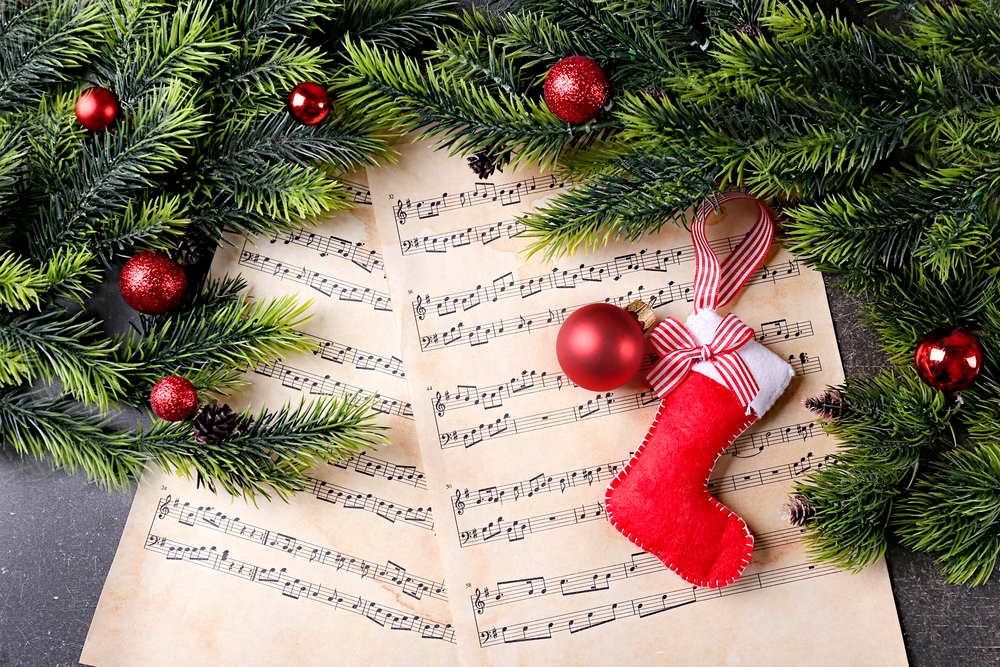Christmas carols to stir your soul
Christmas carols to stir your soul
Christmas carols to stir your soul
-
Hannah
-
Hannah

‘Music is the literature of the heart,’ wrote the French author and poet Alphonse de Lamartine. ‘It commences where speech ends.’
For me, carols set the mood for this season. They have the power to infuse us with spirit – to bring cheer and comfort, to move us, to bring us closer to the meaning of Christmas.
Did you know that the first Christmas hymn was written as long ago as the fourth century AD? It was really from the 13th century, though (thanks to the influence of St. Francis of Assisi), that it began to become popular to sing songs on the theme of Christmas, sowing the seeds for modern-day carolling. Over the centuries that followed, the Churches slowly took to this idea of raising voices in song to celebrate Christmas, and composers set quill to parchment. Once printed music became available, via publication in the 19th century, the door was opened for a carol to spread far and wide, and as popularity for carols increased, so more were written and shared. And still we share them today.
Should you go carolling, or see a choir perform, or perhaps attend a service, you are bound to hear carols that have endured over the many years. Here, I have collated some of my favourite carols sung in England, where I have spent so many wonderful Christmases with my family. I hope that you’ll find a favourite here too, and that listening to it will fill you with all the joy and peace and hope of this time.
All of the songs are performed in the videos by the Choir of King’s College, Cambridge, which was founded all the way back in the 15th century. Every Christmas Eve for more than 100 years, King’s has held a service, the Festival of Nine Lessons and Carols, to give people solace. Each year the BBC broadcasts the Festival of Nine Lessons and Carols, and tomorrow afternoon, wherever you are in the world, you can tune in on your radio to hear the carols on BBC Radio 4 and the BBC World Service (visit the King’s College website for details). You can also watch Carols from King’s on BBC Two tomorrow, which will include other favourite carols like ‘The Holly and the Ivy’, ‘Away in the Manger’ and ‘Silent Night’.
‘The First Noël’
It is thought that this carol originated in Cornwall sometime after the Middle Ages. The current version was published in 1871 in the musical collection Carols, New and Old by composer John Stainer. (It is from Carols, New and Old that we also take our versions of ‘God Rest Ye Merry Gentlemen’, ‘Good King Wenceslas’ and ‘I Saw Three Ships’.)
‘O Holy Night’
In 1843, in Roquemaure, France, a man named Placide Cappeau wrote the poem for which he would be remembered: ‘Minuit, chrétiens’. The poem was so-named for its first line: ‘Minuit, chrétiens! C’est l’heure solennelle’ (‘Midnight, Christians, is the solemn hour’). A composer, Adolphe Adam (famous now too for his operas and his ballet Giselle) set the poem to music, in his ‘Cantique de Noël’. Translated into English in the 1850s by American minister John Sullivan Dwight, this is the carol we know today as ‘O Holy Night’.
‘Hark! The Herald Angels Sing’
We can trace the origins of this carol back to the 18th century, when the lyrics were first conceived by the prolific hymn writer and leader of the Methodist movement Charles Wesley. The wording was tweaked several times by various people, notably fellow Methodist George Whitefield, who turned ‘Hark! how all the welkin rings’ into ‘Hark! the Herald Angels sing’. The tune that we sing today comes from a 19th-century adaptation of the hymn and it’s from the Gutenberg Cantata by the German composer Felix Mendelssohn.
‘O Come, All Ye Faithful’
Who wrote this carol? Well, that is matter of debate: it has been attributed to John Francis Wade, an English hymn-writer; John Reading, an English composer; and John IV of Portugal, who reigned from 1640–1656. Certainly, it was Wade who first published the hymn, in his Cantus Diversi (1751). The song was in Latin and entitled ‘Adeste Fideles’. In the 19th century, a Roman Catholic priest named Frederick Oakeley translated it into English, and his version is the basis for the carol we sing today.
‘Joy to the World’
Let us end on joy! This uplifting carol was written by an English minster called Isaac Watts in the 18th century, based on scripture from the Book of Psalms 98 and Book of Genesis. The arrangement we sing today is by American composer Lowell Mason (who, incidentally, also wrote the melody for ‘Mary Had a Little Lamb’).
Photo credit: Africa Studio/Shutterstock.com.